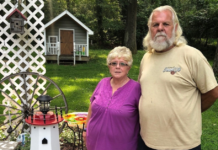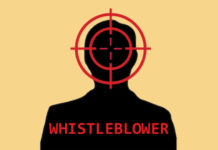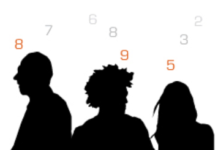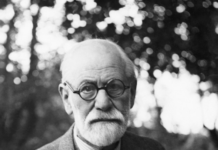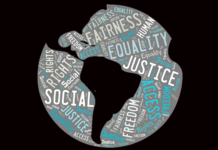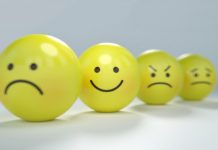The Crisis in Cochrane: Evidence Debased Medicine
From David Healy/the Indian Journal of Medical Ethics: "The mission of the Cochrane Collaboration, established in 1993, was to systematically review medical evidence with a...
Social Stigma One Reason the Opioid Crisis Is Hard to Confront
From NPR: "Hope and Pete Troxell live in Frederick, Maryland. Last year, their 34-year-old daughter Alicia died after overdosing on fentanyl – a synthetic...
Heroes of Science: Survival of a Whistleblower
I am just the messenger, the symbol that healthcare is in many ways absurd and harmful because the drug industry is too powerful. The Cochrane Collaboration is in deep crisis because it is too close to industry, practices scientific censorship and has a business model that focuses on “brand” and “our product” rather than getting the science right.
How a Bench and a Team of Grandmothers Can Tackle Depression
From the BBC: "'A lot of people thought it was a ridiculous idea,' says. 'My colleagues told me, "This is nonsense."'
Lacking any other...
ER Patients Given Ketamine, Antipsychotics in Clinical Trials Without Their Consent, FDA Finds
From STAT: "At least three of the studies cited by the FDA inspectors involved people brought to emergency room with 'severe' agitation, as...
How Some Organized Religion Leads to Religious Trauma Syndrome
From Raw Story: "Religious trauma syndrome (RTS) is a set of symptoms and characteristics that tend to go together and which are related to...
Moving Global Mental Health “Outside Our Heads”
On MIA Radio we interview Dr. Derek Summerfield, honorary senior lecturer at the Institute of Psychiatry in London, former Research Associate at the Refugee Studies Centre at the University of Oxford and consultant at Oxfam.
Are Depression Guidelines Missing the Evidence for Exercise?
A recent review suggests that depression guidelines do not incorporate evidence for exercise within a stepped-care approach and may be over-reliant on pharmacological treatments.
Global Mental Health – The Hypocrisy of Mental Health in The Age of Austerity
Dr. China Mills shares her reactions to recent events focused on Global Mental Health, elaborating on deeper issues with the framing of mental health as a “burden” and the underlying implications of coloniality, technology, and medicalization.
55 Steps to Informed Consent
55 Steps is a new film based on a true story that centers around two women: Collette, a lawyer with a tendency to work long hours, and Eleanor, who has spent far too much time incarcerated in hospitals. Over the course of five years, Collette fights for Eleanor’s right to choose whether or not she takes psychiatric drugs. This film is imperfect, but its importance can’t be ignored.
Kaiser Clinic Launches 4-Question ACE Survey Pilot for Adults
From ACEs Too High News: "In July, medical residents in family medicine at Kaiser Permanente in San Jose, CA, began screening adult patients for...
Seeking Comments on APA Guideline for Depression Treatment
From the American Psychological Association: "The American Psychological Association seeks comments from all interested individuals and groups – including psychologists, healthcare professionals, researchers, clients/patients...
How the Economy Affects Our Mental Health
From YES! Magazine: "As I was reading the current series of YES! articles on the mental health crisis, I received an email from Darcia Narvaez,...
Community-Driven Healthcare for the Homeless Reduces Hospital Costs
Direct access to care in safe locations is key in reducing healthcare costs and increasing quality of life for homeless populations.
A Few Remarks on Freud and Women
From Verso Books: "I recently read an interview of Freud’s last living patient, Margarethe Walter, in which I feel Freud goes some way towards...
Healthy Planet/Healthy Mind with Zach Bush, MD
Business as usual — big farming, big pharma and conventional healthcare — is threatening our planet and our very ability to survive as a species. Planetary and human health are at a tipping point. Solutions informed by the science of environmental health, epigenetics and the microbiome, are elegantly simple, but their impact is profound.
The Uncomfortable Truth: Psych Wards and Sexual Assault
From The Independent: "Sexual assault and harassment is 'commonplace' on inpatient psychiatric wards, according to Dr Paul Lelliott, the deputy chief inspector of hospitals and...
Watchdog Slams Safeguards for Foster Kids on Psych Drugs
From AP News: "Thousands of foster children may be getting powerful psychiatric drugs prescribed to them without basic safeguards, says a federal watchdog agency...
What’s Blocking Progress in Behavioral Healthcare?
It's time to stop blocking progress and give peer-run organizations the same access to the funding streams used by Community Mental Health Centers. There is no reason to give more money to the people who have had all the money all along and can't solve the problems. Open up the competition, and then see what kind of amazing developments occur.
Indigenous People Fighting to Live Through Community and Activism
From Ricochet: "'Personal individual solutions of therapists, of internalizing it, and that kind of stuff, is problematic,' explains McKay. 'Our own view is...
Is There an Optimal Sleep Duration for Adolescents?
A new study finds ideal sleep duration differs in adolescents for peak mental health and academic outcomes.
What Does Social Justice Really Mean for Psychologists?
Without clarity and consensus around what social justice means, psychologists risk perpetuating injustices that undermine their stated mission.
Did You Ever Stop Taking Antipsychotics? – World Survey on Withdrawal
Antipsychotics are big business, professionals are often at a loss as to how to help people going through disturbing experiences, the voices of patients are crowded out of the equation — there are many reasons for the lack of real education and informed consent around antipsychotics. To address this gap in knowledge, we launched a world study on antipsychotic medication withdrawal.
Social Injustice and Inequality in the Care System
From Psychologists for Social Change: "Professionals tend to talk about families’ problems in terms of the chances of something bad happening to them. We,...
Challenging Resilience as a Buzzword: Toward a Contextualized Resilience Model
Researcher Dr. Silke Schwarz highlights how Western psychology’s construction of individual resilience deflects emphasized individual pathology and deflects efforts at structural change.


